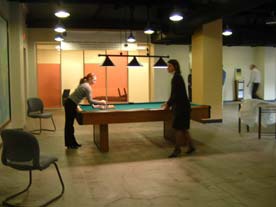U.S. Waste and Recycling
The U.S. generated approximately 251 million tons of municipal solid waste (MSW) in 2012. Almost 87 million tons were recycled and composted, which represents a 34.5% recycling rate. Solid waste generated per capita is the lowest since the 1980s. This is a 3 percent increase in the tons recycled.
Reduce facility waste with SFToolRelated Topics
Composting
Composting is the process of decomposing organic waste such as paper plates, food waste, and yard trimmings. By composting, less waste is sent to the landfill. Soil with compost improves plant growth with less water; compost can also be used for erosion control.
Guiding Principles for Sustainable Federal Buildings
The Guiding Principles for Sustainable Federal Buildings and Associated Instructions are a set of sustainable principles for integrated design, energy performance, water conservation, indoor environmental quality, materials, and resilience aimed at helping Federal agencies and organizations:
- Reduce the total ownership cost of facilities
- Improve energy efficiency and water conservation
- Provide safe, healthy, and productive built environments
- Promote sustainable environmental stewardship
Guiding Principles for Sustainable Federal Buildings and Associated Instructions
Recycling
Recycling is the process of collecting and processing materials (that would otherwise be thrown away as trash) and remanufacturing them into new products. Recycling support stations and the education of occupants and janitorial staff are the backbone of a successful waste diversion plan. Start by confirming with the recycling hauler and compost service what materials are acceptable and the proper collection method. Separate, color-coded, well-labeled and strategically placed recycling containers and waste receptacles make sorting and collection convenient and support occupant participation.
Solid Waste
Waste comprises all materials that flow from a building to final disposal. Examples include paper, grass trimmings, food scraps, and plastics. Responsible stewardship tries to divert as much waste as possible from the landfill. This can mean recycling paper, mulching or composting grass trimmings, and reusing large items, such as furniture.

